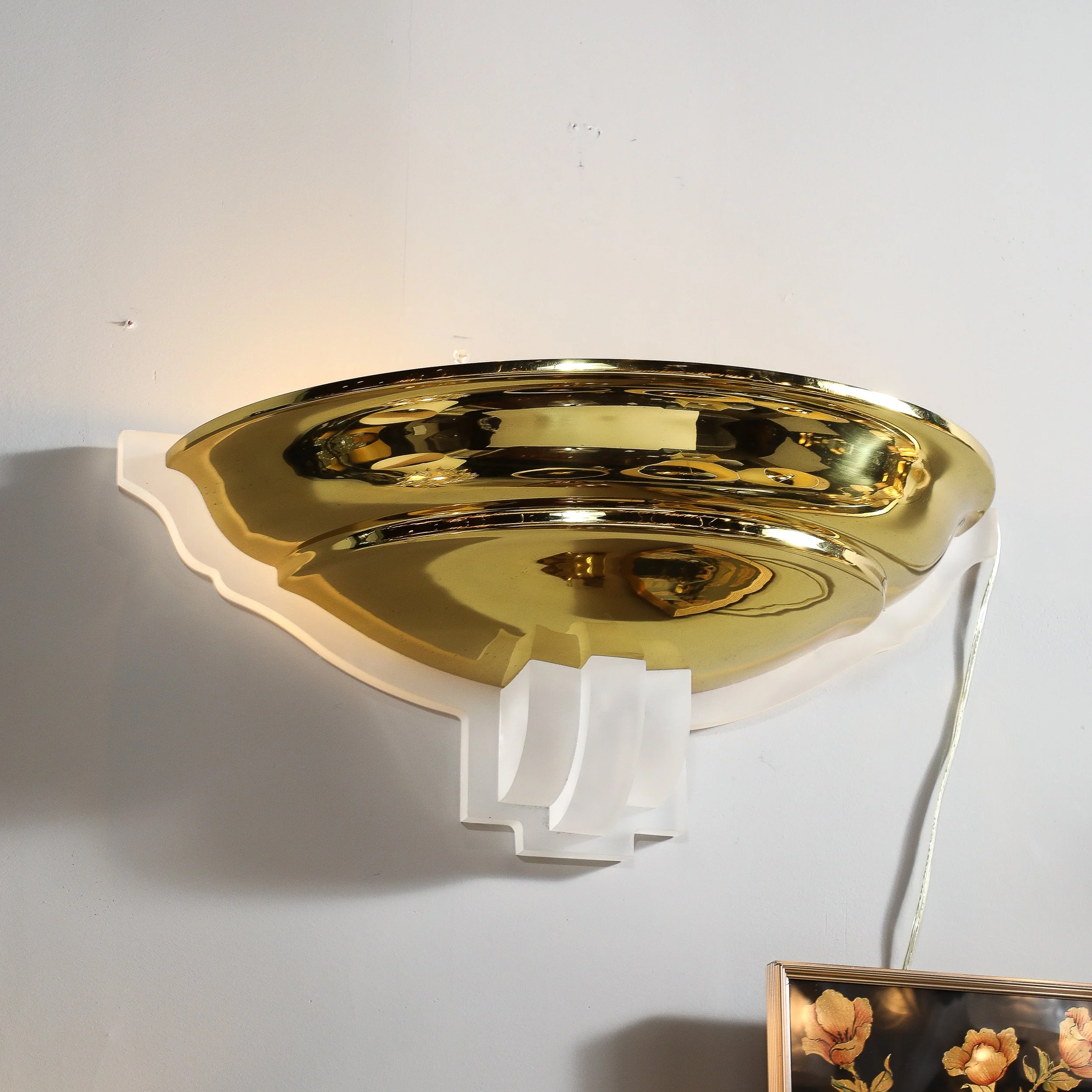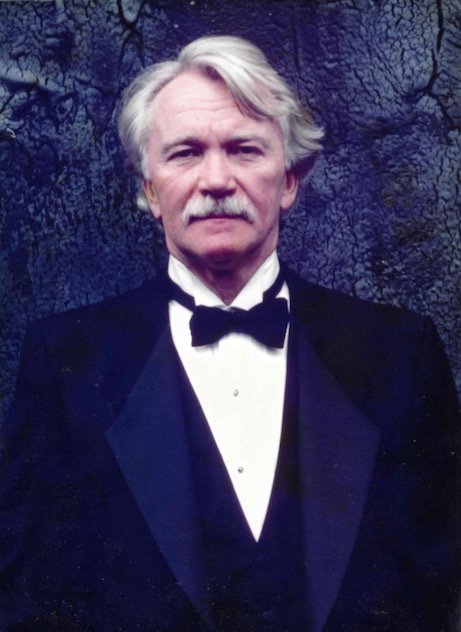Pair of Mid-Century Brass & Lucite "Spun Shaped Wall Sconces" by Karl Springer


















Pair of Mid-Century Brass & Lucite "Spun Shaped Wall Sconces" by Karl Springer
This gleaming and bold Pair of Mid-Century Modernist "Spun Shaped Wall Sconces" in Brass and Frosted Lucite are by the esteemed artist and designer Karl Springer and originate from the United States, Circa 1980. Featuring spun form diffusing shades in polished brass with a lining and base detailing in frosted lucite. The silhouette of the lucite follows the edge of the brass, delineating the form with seriffed edges and a skyscraper style motif in the center, arching upwards to support the brass element. Bold and glamorous, these sconces are sure to make an alluring statement and will unify a space beautifully when used as a pair. Karl Springer is highly regarded and well known for his use of proportion, geometric forms, and unique material combinations. Newly rewired to American Standards, these sconces each take two Edison base light bulbs achieving up to 200 watts of light per sconce. In Excellent Vintage Condition.
American, circa 1980
Dimensions:
Height: 10.5 in (26.67 cm) x Width: 23.5 in (59.69 cm) x Depth: 14 in (35.56 cm)
Creator: Karl Springer (Maker)
Sold As: Set of 2
Power Source: Hardwired
Style: Mid-Century Modern (Of the Period)
Materials and Techniques: Brass, Lucite
Period: 1980-1989
Date of Manufacture: circa 1980
Condition: Excellent. Rewired.
Reference Number: LU793438140022
KARL SPRINGER
Karl Springer stands as one of the most influential American furniture designers of the latter half of the 20th century. His unique blend of chic sophistication and raw materials made his work highly desirable and frequently imitated from the 1960s through the 1990s. Even today, his influence is evident in high-end contemporary furniture.
Born in Berlin, Germany, in 1931, Springer immigrated to New York in 1957. Initially, he found work as a top window dresser for Lord & Taylor's flagship store on Fifth Avenue. During his evenings, he developed a line of exotic leather accessories. With the support of a friend, Springer's accessory line was placed in a prestigious specialty shop within Bergdorf Goodman, where it quickly became an overnight sensation.
Capitalizing on his newfound success, Springer opened an atelier on East 53rd Street, then an emerging boutique row. It is said that the Duchess of Windsor discovered him, and her patronage catapulted him into the limelight. Designers and patrons flocked to his small shop, charmed by his personality and captivated by his creations. Soon, he began taking commissions for larger and more significant pieces, always pursuing fine materials and old-world finishing techniques. Whether using ancient oriental lacquer techniques or heavy Lucite, Springer effortlessly incorporated various elements into his creations. He searched for forms within many design movements, distilling them to their purest shapes. He quickly developed a network of artisans and craftsmen, demanding the highest quality of materials and workmanship.
During this time, Springer met Mark Eckman, a young industrial designer with a line of Lucite furniture and lighting. Their collaboration began with Lucite and expanded into other materials. Springer's brother Joachim also joined the business as it rapidly expanded into a full-sized furniture line sold in cities such as Los Angeles, Miami, Chicago, Dallas, Munich, and Tokyo.
At its peak, the New York showroom relocated to a 20,000-square-foot penthouse on East 61st Street. However, the company ceased production in 1992. Karl Springer passed away in 1991, leaving behind a rich design legacy. He was honored with a one-man show at the New York School of Interior Design in 1994. Numerous articles about him have appeared in prestigious design journals, and his original pieces are in great demand among dealers of 20th-century furniture.
Today, Karl Springer Ltd. continues to honor his legacy by providing authentication, appraisal, and repair services. The company remains committed to producing his designs consistent with his philosophy, ensuring that Karl Springer's timeless and sophisticated style endures.

